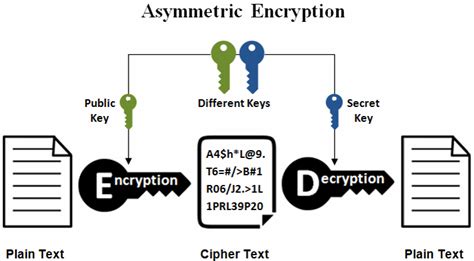The world of cryptography is at a critical juncture, with the future of encryption hanging in the balance. The ongoing struggle between different factions of cryptographers, known as the "Ecc Tech Wars," has sparked a heated debate about the direction of encryption technology.
At the heart of the controversy is the dispute between proponents of different types of elliptic curve cryptography (ECC). ECC is a widely used encryption technique that is based on the mathematical concept of elliptic curves. It is a crucial component of many secure communication protocols, including those used in online banking, email, and other sensitive applications.
The Rise of Quantum Computing
One of the key factors driving the Ecc Tech Wars is the emergence of quantum computing. Quantum computers have the potential to revolutionize many fields, but they also pose a significant threat to traditional encryption methods. Many experts believe that large-scale quantum computers could break certain types of encryption, including some ECC implementations, in a relatively short period.

Post-Quantum Cryptography
In response to the threat posed by quantum computing, researchers have begun exploring new types of encryption that are resistant to quantum attacks. These "post-quantum" encryption methods are designed to be secure against both classical and quantum computers.
One of the leading contenders for post-quantum encryption is lattice-based cryptography. This approach uses complex mathematical structures called lattices to create secure encryption schemes. Lattice-based cryptography has shown significant promise in early trials and is being actively developed by several research groups.

The Role of ECC in Post-Quantum Cryptography
While ECC is vulnerable to quantum attacks, it is still a widely used and well-established encryption technique. Many experts believe that ECC will continue to play a significant role in post-quantum cryptography, particularly in the short to medium term.
However, the ongoing debate about the future of ECC has sparked a heated discussion about the direction of post-quantum cryptography. Some researchers argue that ECC should be phased out in favor of newer, more secure encryption methods. Others believe that ECC can be adapted to be more resistant to quantum attacks.
ECC Key Sizes and Quantum Resistance
One of the key challenges facing ECC is the need for larger key sizes to ensure quantum resistance. Traditional ECC key sizes are typically around 256 bits, but some researchers believe that this is insufficient to withstand quantum attacks.
In response, some developers are exploring the use of larger ECC key sizes, such as 384 bits or 512 bits. While this increases the computational overhead of ECC, it also provides a significant boost to security.

The Future of Encryption
As the Ecc Tech Wars continue to unfold, it is clear that the future of encryption is at stake. While the emergence of quantum computing poses a significant threat to traditional encryption methods, it also presents an opportunity for innovation and growth.
Ultimately, the future of encryption will depend on the development of new, post-quantum encryption methods. Lattice-based cryptography, hash-based signatures, and other approaches show significant promise, but much work remains to be done.
As the cryptographic community continues to debate the future of ECC and post-quantum cryptography, one thing is clear: the stakes are high, and the future of secure communication hangs in the balance.



What is the Ecc Tech Wars?
+The Ecc Tech Wars refers to the ongoing debate and competition between different factions of cryptographers regarding the future of elliptic curve cryptography (ECC) and post-quantum cryptography.
What is the threat posed by quantum computing to traditional encryption methods?
+Quantum computers have the potential to break certain types of encryption, including some ECC implementations, in a relatively short period. This poses a significant threat to the security of online communication and data storage.
What is lattice-based cryptography?
+Lattice-based cryptography is a type of post-quantum encryption that uses complex mathematical structures called lattices to create secure encryption schemes.
